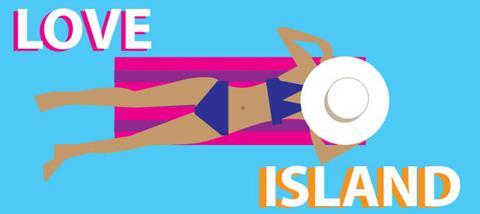
Almost one in four of those who took part in a YouGov survey said reality TV makes them worry about their body image. But what can we do to support the young people affected?
Body image is not a mental health problem in and of itself, but having a poor body image can impact our mental health.
A survey for the Mental Health Foundation shows that 31 per cent of teenagers said that in the last year they had felt ashamed of their body image. 35 per cent of UK adults said that in the last year they have felt depressed about their body image and one in eight adults have experienced suicidal thoughts because of concerns about their body image. So it is a serious issue of concern and definitely not just a ‘young female problem’, but can affect us all.
So what influences how we think about our bodies?
- Our relationships with family, friends and others. Do we feel truly loved and accepted for who we are or do we feel that we have to be someone or something else? This is about so much more than body image, but can be attached to the body. If I feel that I am not loveable, I may think: “If only I looked different then perhaps I would be more loveable.”
- How family, friends, peers, speak about bodies and appearance. Do they convey messages about what is attractive, what is not attractive, what we need to be trying to look like?
- Bullying, teasing, name calling – whether now or we live with the effects from past experiences.
- The images and messages from the media, social media and advertising that subtly or unsubtly tell us that we need to look a certain way to be loved, attractive, successful. So many of these images are idealized, unrealistic and unachievable for all of us ordinary, average looking people, but if you are trying to achieve an unachievable goal it can lead to depression and despair and cause you to begin to despise your own body.
- Gender and sexuality struggles can cause us to feel alienated from our bodies and want to reject our physical shell.
There is much campaigning being undertaken with regard to social media, advertising standards, improvements to nutrition and taking care of our bodies and education, but what can we do if it is an issue for us personally and how can we as Christians, who believe that all people are made in the image of God support people impacted by poor body image?
What can we do if we are dealing with body image issues?
- Find someone who you can trust to talk to – friend, family member or perhaps a health professional (GP, counsellor).
- Review what images you are allowing to influence you – perhaps stop following certain accounts on social media, remove apps from mobiles, stop buying particular magazines or visiting certain websites, be more objective when you see adverts on TV.
- You can complain to the Advertising Standards Authority about adverts that you think present an unhealthy body image as aspirational.
- Learn how to love and care for yourself – body, mind, soul and spirit and do a small thing each day to show care to your body – relaxation exercise, massage your feet, relax in a bath – whatever works for you.
- Spend a few moments each day reflecting on the fact that you are part of God’s creation about which the Bible says: “God saw all that he had made, and it was very good.” You are made in the image of God and as Psalm 139 says: “You are fearfully and wonderfully made” and “You are part of God’s wonderful, works.” Think about the many encounters that Jesus had with people. Did he ever criticise physical appearance, tell them they needed to be taller, shorter, fatter, thinner, have a different shaped chin, lips, thighs? No no no.
God wants us to look after our bodies, because he cares for us, but he does not want us to try to conform ourselves to look like an idealised image. Your already are an ideal image – made in the image of God.
What can we as youth and children’s workers do?
- Like all other mental health related issues, let’s start talking about body image more openly.
- Don’t dismiss concerns – they are very real for the individual and impacting their daily life.
- ·Become more informed and have information available for people struggling with these issues. Try mentalhealth.org or the NHS website.
- Think about how we may unconsciously give out messages about body image – what images do we use on our notice boards, in our illustrations – are they all “beautiful people”?
- Let’s be positive about healthy living – eating well, being active – encouraging people to take care of their bodies.
- Really be a place where people feel loved and accepted as they are.
Image design by Rachel Orphan.







































